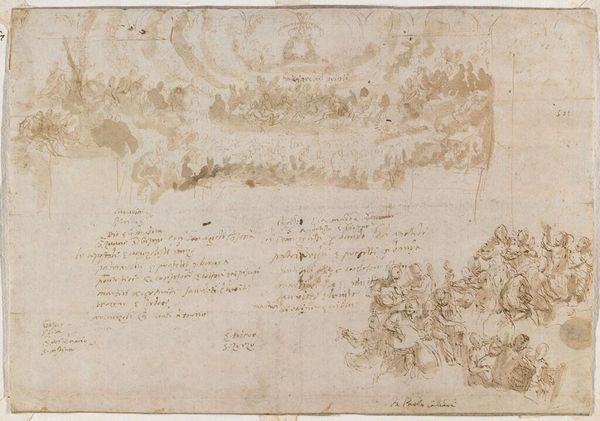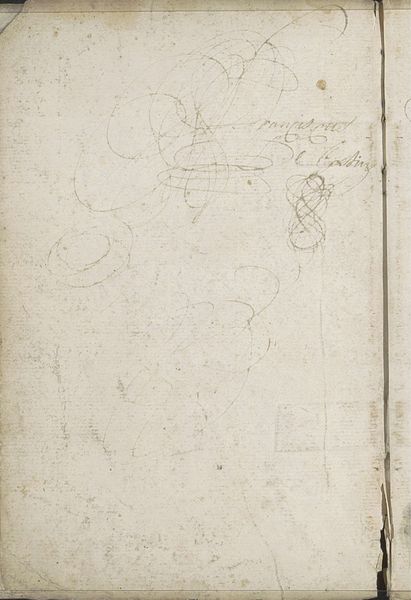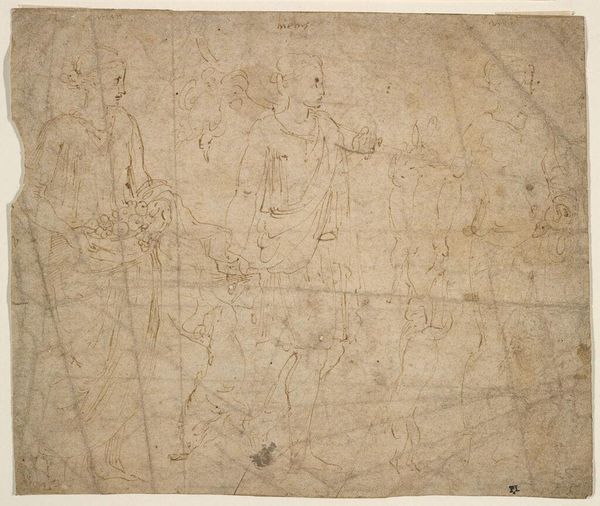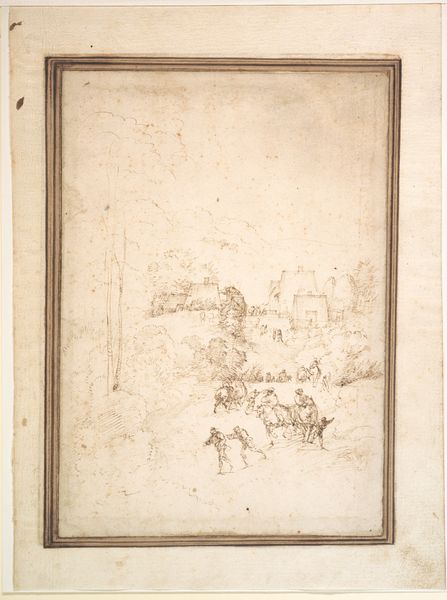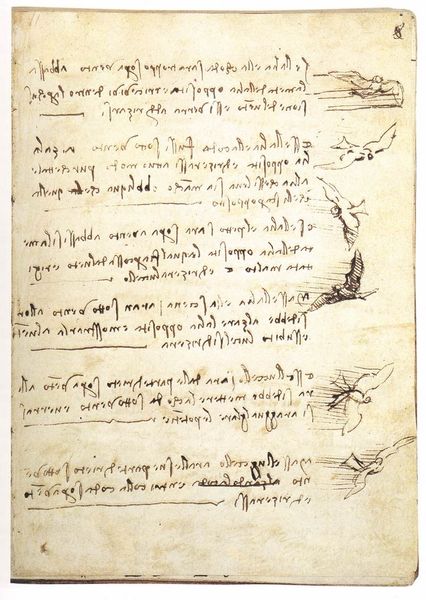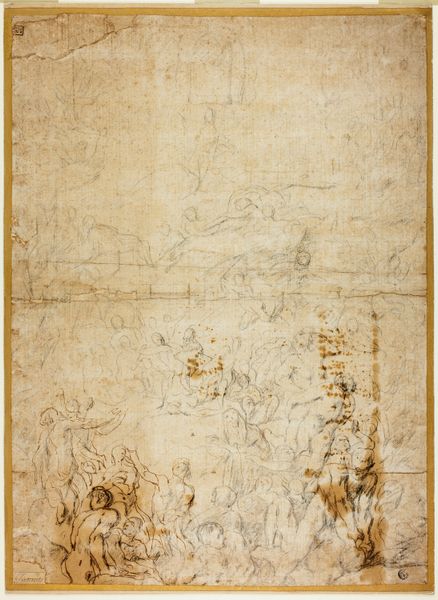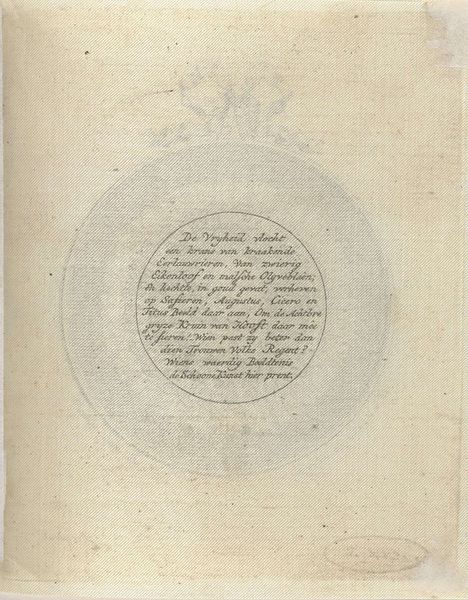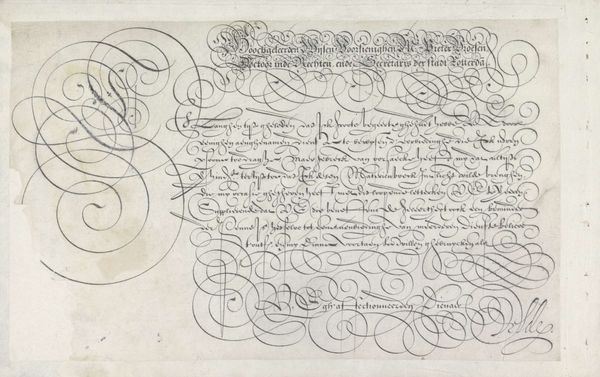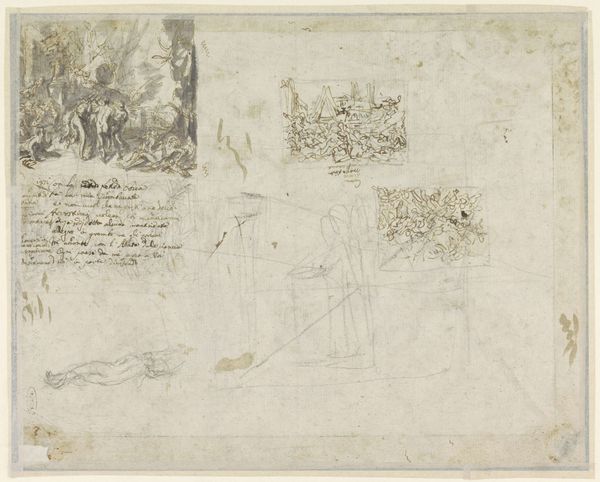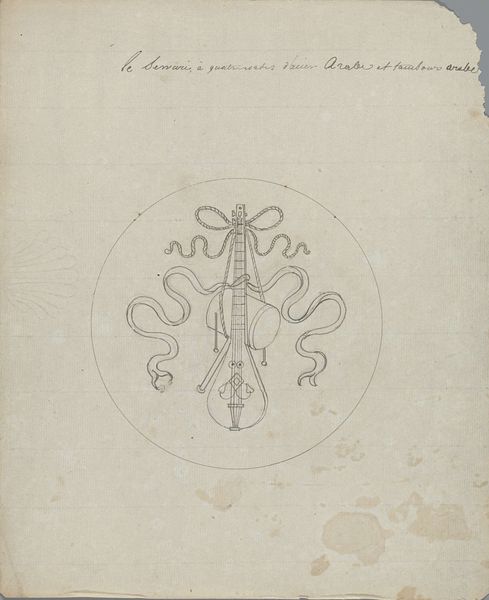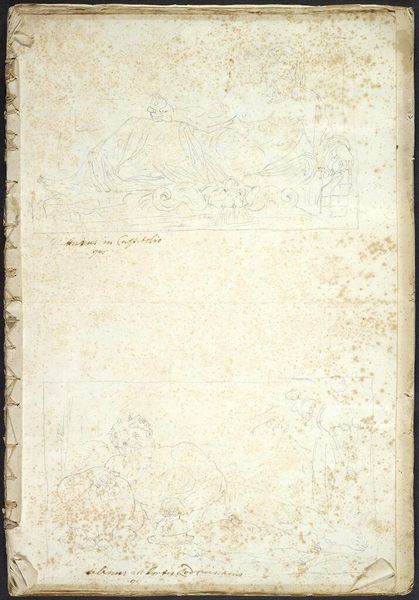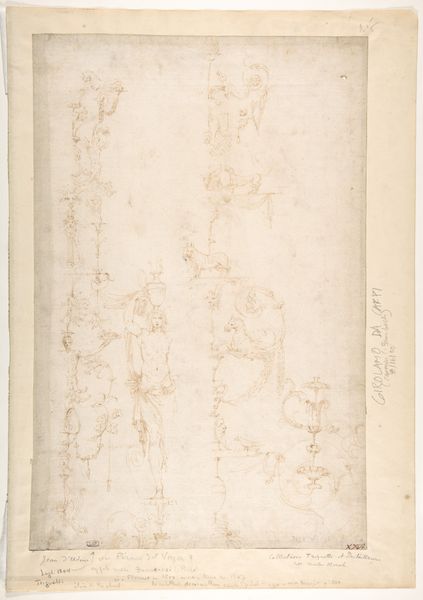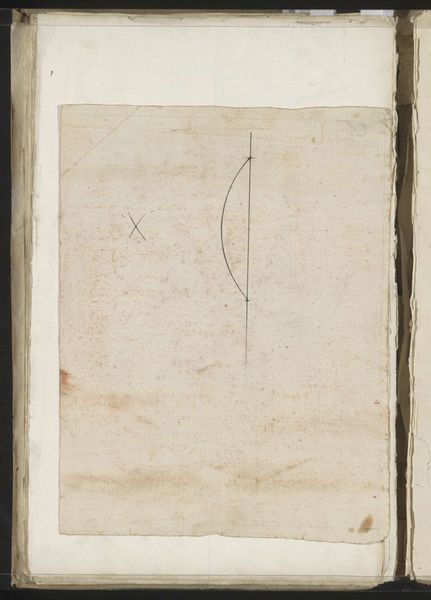
drawing, paper, ink
#
portrait
#
drawing
#
high-renaissance
#
narrative-art
#
ink painting
#
figuration
#
paper
#
text
#
ink
#
christianity
#
history-painting
#
academic-art
#
italian-renaissance
#
christ
Dimensions: 26.6 x 21.4 cm
Copyright: Public domain
Curator: Just glancing at it, I’m struck by the dynamism of this sketch; it captures raw emotion and immediacy. Editor: What you’re observing is Leonardo da Vinci’s 1494 "Study for the Last Supper," a red chalk and ink drawing on paper, a preparatory piece for his famed mural in the refectory of the Convent of Santa Maria delle Grazie in Milan. Curator: You know, even in this nascent form, before the colors, the figures burst forth. Look at the agitated gestures—the flurry of arms expressing surprise and denial in the faces of Christ’s disciples. Editor: Absolutely, but let's think about why Leonardo worked this way. In Renaissance Florence and Milan, preparatory studies allowed the artist to secure commissions by sharing progress and it's clear in this one that geometry plays a central role, influencing compositional elements through precise mathematical underpinnings. It merges both scientific investigation and artistic visualization. Curator: True. Below the grouping of the twelve apostles are geometrical diagrams, indicating Da Vinci's intent to embed perfect harmonies and symbolic values that enhance our emotional experience when viewing the finalized Last Supper. Look to those wheel-like forms at the side. He thought deeply about form. Editor: And we can see, via this piece, that this intellectual approach certainly served political function during a crucial phase of High Renaissance thought where classical ideas, infused into Christian thematic contexts, defined art at this time Curator: It’s incredible how the underlying intellectual scaffolding impacts us. It's clear his genius transcended technical mastery; he evoked profoundly human drama within a visually codified representation. Editor: Leonardo's study presents more than an artwork. It’s also a portal into Renaissance sociopolitical ethos where science intertwined strategically inside religious representations reflecting Da Vinci’s transformative time. Curator: Examining this sketch deepens our perception of not only the famous finished mural but additionally emphasizes its intellectual context steeped amidst complex cultural streams! Editor: Precisely so - unveiling layers integral towards art appreciation by illuminating their connection, spanning across many centuries until now, ultimately shaping their meanings persistently ever afterward.
Comments
No comments
Be the first to comment and join the conversation on the ultimate creative platform.
